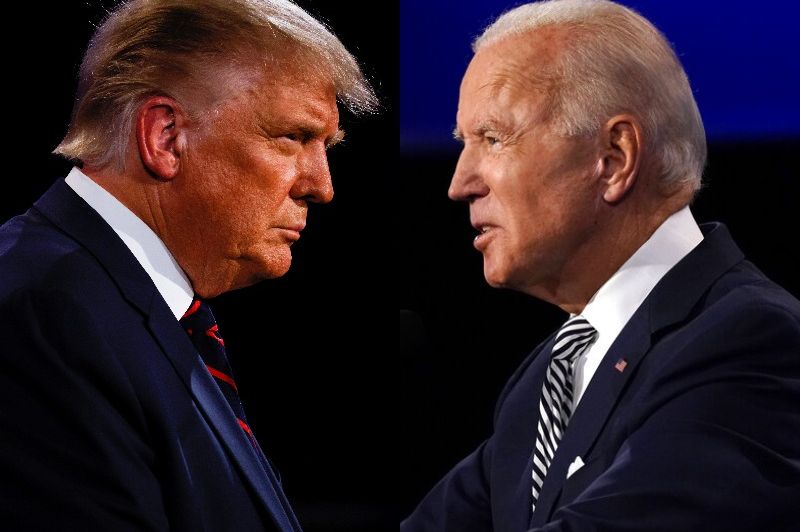Washington: Even though the US is a democratic country like India, the polling process is completely different. In the US presidential elections the popular votes do not matter, what matters is the Electoral College votes. When it comes to who wins the White House, the Electoral College will ultimately decide the winner once all the votes around the US are counted.
Popular votes don’t matter
There have been five occasions in American history that the U.S. presidential election was not won by the person with the most overall votes. It has happened twice in the last 20 years. This is because of the influence of the Electoral College votes.
Nearly 2.9 million more people voted for Hillary Clinton in the 2016 presidential elections, but she still lost. President Donald Trump won because he took the Electoral College, under a system set up in the US Constitution and refined through the centuries.
Importance of Electoral College
In the presidential election, each state gets a certain number of electoral votes based on its number of senators and representatives. Because each state has two senators, the key factor is each state’s number of representatives – which is based on population. This is one reason why the Census, taken every 10 years, is vital. It helps determine how many seats in the House each state gets.
California is the US state with the maximum population. It has 53 representatives in the US House of Representatives. With the votes of two senators, the total number of electoral votes the state has is 55. California is followed by Texas with 38 electoral votes. After that, New York and Florida are tied with 29 votes each. Then, it goes to Illinois and Pennsylvania with 20 each.
Number of electoral votes for each state in the US:
California 55 votes
Texas 38 votes
Florida 29 votes
New York 29 votes
Pennsylvania 20 votes
Illinois 20 votes
Ohio 18 votes
Georgia 16 votes
Michigan 16 votes
North Carolina 15 votes
New Jersey 14 votes
Virginia 13 votes
Washington 12 votes
Massachusetts 11 votes
Arizona 11 votes
Indiana 11 votes
Tennessee 11 votes
Maryland 10 votes
Minnesota 10 votes
Missouri 10 votes
Wisconsin 10 votes
Alabama 9 votes
Colorado 9 votes
South Carolina 9 votes
Kentucky 8 votes
Louisiana 8 votes
Connecticut 7 votes
Oklahoma 7 votes
Oregon 7 votes
Arkansas 6 votes
Iowa 6 votes
Utah 6 votes
Nevada 6 votes
Mississippi 6 votes
Kansas 6 votes
Nebraska 5 votes
West Virginia 5 votes
New Mexico 5 votes
Hawaii 4 votes
Idaho 4 votes
Maine 4 votes
Rhode Island 4 votes
New Hampshire 4 votes
Alaska 3 votes
Montana 3 votes
Delaware 3 votes
Columbia 3 votes
North Dakota 3 votes
South Dakota 3 votes
Vermont 3 votes
Wyoming 3 votes
A presidential candidate will have to get 270 of these 538 Electoral College votes to go to the White House. Joe Biden may win in more states than Donald Trump, but if the latter wins in California, he will certainly have a huge advantage. The voters will only determine which state has gone to either Trump of Biden. However, they will not be able to determine which man will go to the White House. Hence the fate of both men is in the hands of the Electoral College. Usually these electors ‘pledge’ to vote for the presidential and vice-presidential candidates that receive the most votes in their respective states.
Trump’s best path
Trump has several paths to 270, but his best route hinges on winning Florida and Pennsylvania. If he wins both states and holds onto North Carolina and Arizona, which he narrowly carried in 2016, and also Georgia and Ohio, which he won in 2016 but is now competitive, he will win. With 29 electoral votes, Florida is arguably the most crucial state for Trump. A loss there would make it nearly impossible for him to retain the White House.
What Biden needs
Democrat Joe Biden’s campaign is laser-focused on the states in the Midwest and close by that Trump flipped in 2016 — Michigan, Wisconsin and Pennsylvania. He’s also making a big play for Arizona, a state that hasn’t backed a Democratic presidential candidate since 1996. Biden is also redoubling his focus on Florida, the biggest prize among the perennial battlegrounds. It is a state that would virtually block Trump’s reelection if it swings Democratic.
